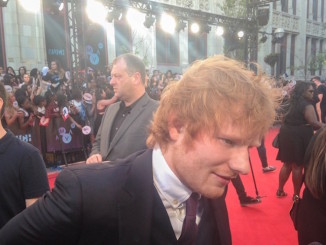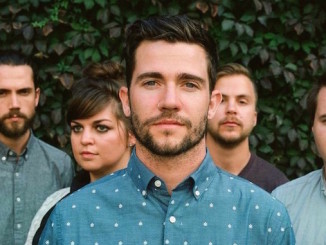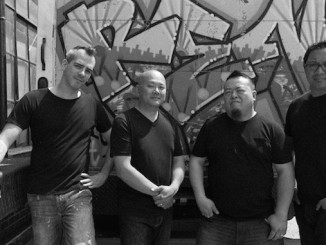In music, audible maturation doesn’t come naturally—it’s earned, and usually through experience. (And by experience, we mean heartbreak, loss, despair and other such soul-crushing shit.) And the maturity evident in the songs of Toronto-via-Vancouver folkster Freddie Mojallal, a.k.a. The Autumn Portrait, came from plenty of sources, all of them earned: He, as evidenced in songs such as “Tired Love” and “Goodbye,” had his fair share of heart-crushing breakups. In recent years, he operated as part vagrant, part busybody, moving from Vancouver, to Calgary, to Toronto. And that ceaseless globetrotting, of course, can result in equal parts longing and grinding existential despair.
No wonder, then, that his newest album’s titled Tired Love. Yet Mojallal has taken his hardships in stride, and that’s audible on every last step of Tired Love. It’s a folk album that defies easy comparisons, an LP that emotes yet never over-emotes, a collection of songs that’s remarkably expository without feeling over-indulgent. And Mojallal will unveil Tired Love tonight at the Cameron House (408 Queen St. W), where he’s celebrating the album’s release.
Of course, don’t believe us. Check the YouTube tracks we’ve listed, or better yet, catch him live tonight. Tickets, you ask? Get ’em while they’re hot. It kicks off at 9:00 p.m., and The Autumn Portrait will be joined by Stacey and Morgan Cameron Ross. More info can be found on the event’s Facebook page—and check out a Q&A with Mojallal after the jump.
So, you’ve lived in Calgary, Vancouver and Toronto. How has each city impacted your songwriting—and do you think that the songs on Tired Love carry any of Toronto’s influence? You talk about home a lot on the LP—is Toronto officially home for you now?
That’s right. Toronto is my home now. After living in a few other wonderful places, I’ve decided to be stationed here. Such a vibrant place with so much culture, music, and art. I love it. I wrote all the songs on Tired Love here in Toronto after dealing with heartbreak on the West Coast. I had moved here and had so much to write about. I just sat down with my guitar and voice and all these songs came pouring out. Love lost and moving to a great city like Toronto has inspired me to write what I feel are the best songs I’ve written to date.
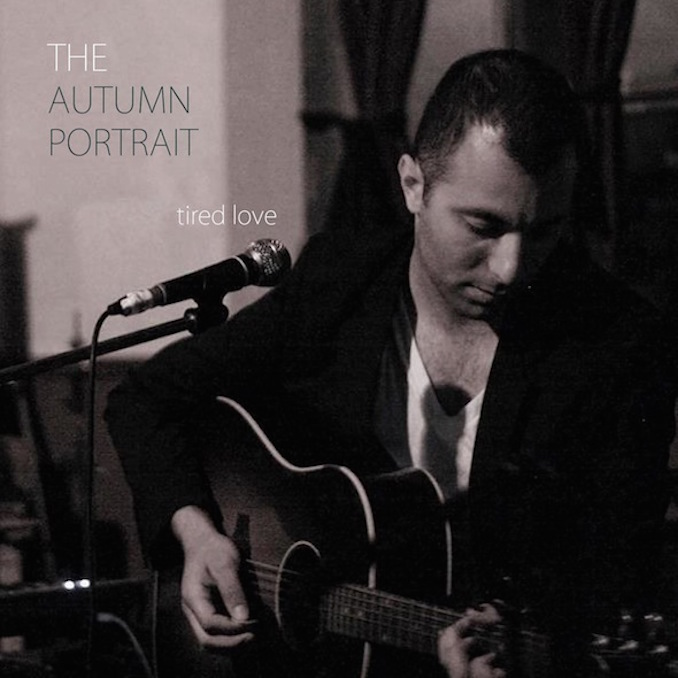
Loneliness also plays a part in these songs—especially “Can I Come Back Home.” Is that loneliness a sense of genuine yearning, or is it a criticism of how (notoriously) unfriendly Toronto can be, especially to newcomers?
It’s about being homesick. More than just a physical location, home is that familiar place I grew to love. For me it was my relationship and these songs helped me get through that. And yeah, location-wise, it was also the first time I had been so far away from the West Coast. I love it here though. Toronto has been extremely warm and inviting to me and I have met so many great people. I think people know how wonderful this place is.
Other areas of the country can view Toronto as a place of opportunity for musicians; in reality, the competitiveness of our city often crushes musicians. As a relatively recent import to the city, what’s your take on the music scene here?
Toronto is amazing. So much art and culture. It was an obvious choice for me as it’s such a music hub. I have met so many great people that are genuinely nice and a lot of great artists. More saturated, perhaps, but more opportunity? Yes. Such a great place to be for any artist in my opinion.
If I could identify any other theme to these songs, it’s either loss or yearning. Am I missing the point here—or is there anything else that thematically binds the LP?
It’s the theme of tired love: we’ve all been there. I think everyone can relate to it. All the songs touch on love lost and all the change that comes along with that. You can still feel alone when you have a significant other. It’s the worst feeling in the world next to losing them.
Are you an autobiographical or fictional writer? Can you tell me about the specific events that inspired, say, “Tired Love” or “My Brother”—or at least, what put you in the headspace to write those songs?
I wrote all the songs on Tired Love from personal experience. The album is about relationships on a few levels. They are honest, heartfelt songs and I have never been so vulnerable by putting myself out there.
“Tired Love” was realizing I couldn’t be with the person that meant the most to me. It’s about everything I worked so hard for [and] all of sudden realizing it was time to move on. Accepting that and moving on was hard but it was for the best. I wrote “My Brother” for one of my closest friends in Vancouver. He had stopped doing what he loved, which was playing music. It was a difficult time so I was inspired to write this song for him. He was always a big inspiration to me, with both his talent and heart.
“This Air Don’t Fill My Lungs” and “Goodbye” are uber-earnest breakup songs—and they make some frank observations, like “food don’t taste the way it should.” Has an ex ever confronted you about these lyrics, or any other lyrics you’ve written about past romances?
Well, as sad as these songs can be, they are looking back at a time when things were amazing. A time where you had butterflies just thinking about the other person. They reflect me wishing them the best, and wanting them to be happy.
You’ve moved closer and closer to folk as your career’s matured—Tired Love might be your most stripped-down offering yet. Why do you think it’s such a common trend amongst musicians to move in folkier directions as their career progresses?
I’ve matured as a person and a songwriter. Like myself, I think people want to focus on the voice and the guitar. Honest, heartfelt lyrics speak volumes. You don’t always need the loud amps and smashing cymbals. I do appreciate all forms of music, but I really want the voice and lyrics to stand out. I write from the heart and want people to hear me out. My band compliments that sound with their skills. They bring this element to the band that I really like. Complimentary percussion, violin, and vocal harmonies really add another level to the songs live.
One of the most memorable parts of the album is the whistling portion of “You Help Me See the Light.” How did you develop that particular moment—was it one of those melodies you had stuck in your head commuting to work, or in the shower, or just walking around the city?
Like all of the songs on Tired Love, the content came out so naturally, almost without effort. I was recording “You Help Me See the Light” in-studio, and when I played the intro, I naturally started whistling the vocal melody over it. I really liked how it sounded. It had a charm to it. I added a glockenspiel and the combination of the two was amazing. Really made the song. With almost all these songs, I would write them start to finish and record them right away. Then I would put on some headphones and walk around the city and listen to them on repeat. It was an amazing experience.
A great thing about this album is that it doesn’t wear its influence on its sleeves, which can be a rarity among folk musicians (or musicians, period). The only thing I could really discern here are notes of Joel Plaskett and a few Bon Iver harmonies. So, be real: Who were the musicians who informed your songwriting on the album?
I’m huge into folk right now: Glen Hansard, Lumineers, Ben Harper, Head and the Heart, Hey Rosetta. Joel Plaskett and Bon Iver for sure. So inspiring and I’d love to share the stage with them one day.
That wraps it up for me. Anything else to add?
I just really love Toronto, and I’m looking forward to touring this new album in Ontario and the East Coast, and then touring Europe. I will definitely be stationed in Toronto. How could I not be close to [Sneaky Dees], a place with amazing nachos?
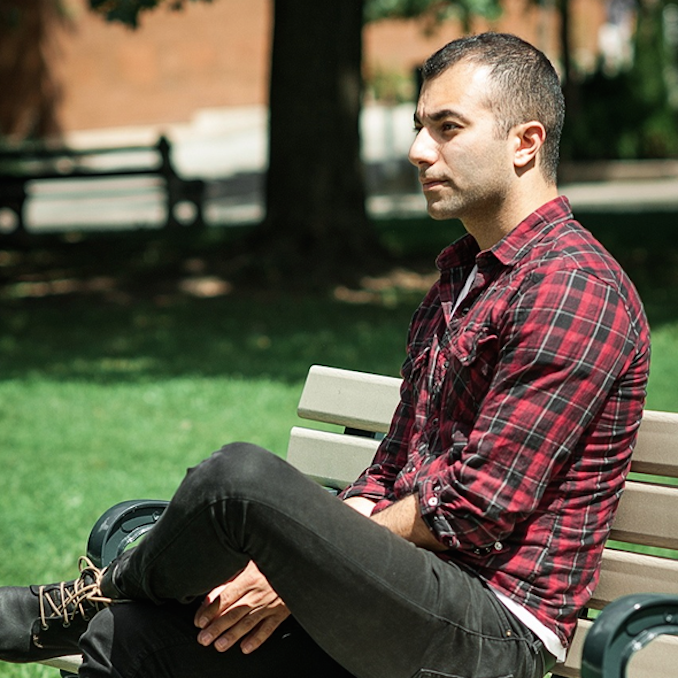
Article written by Mark Teo


